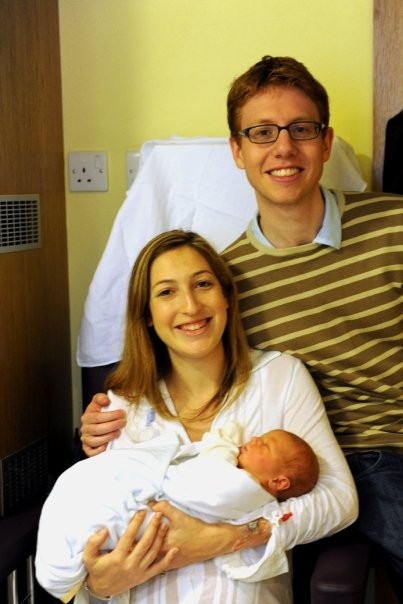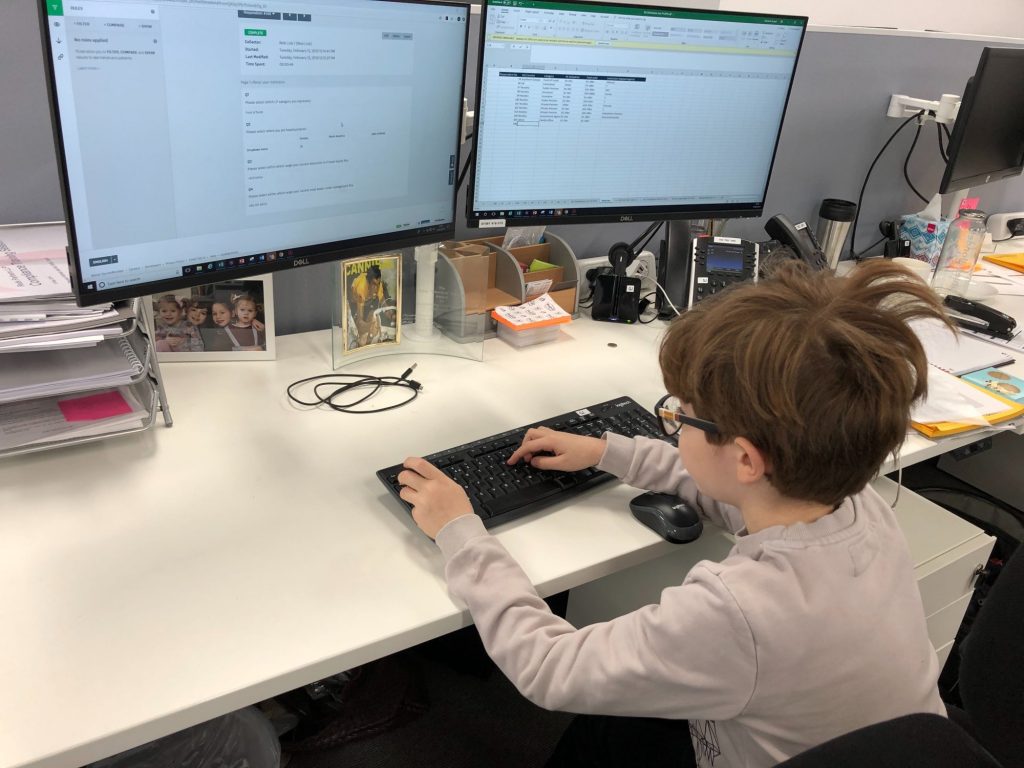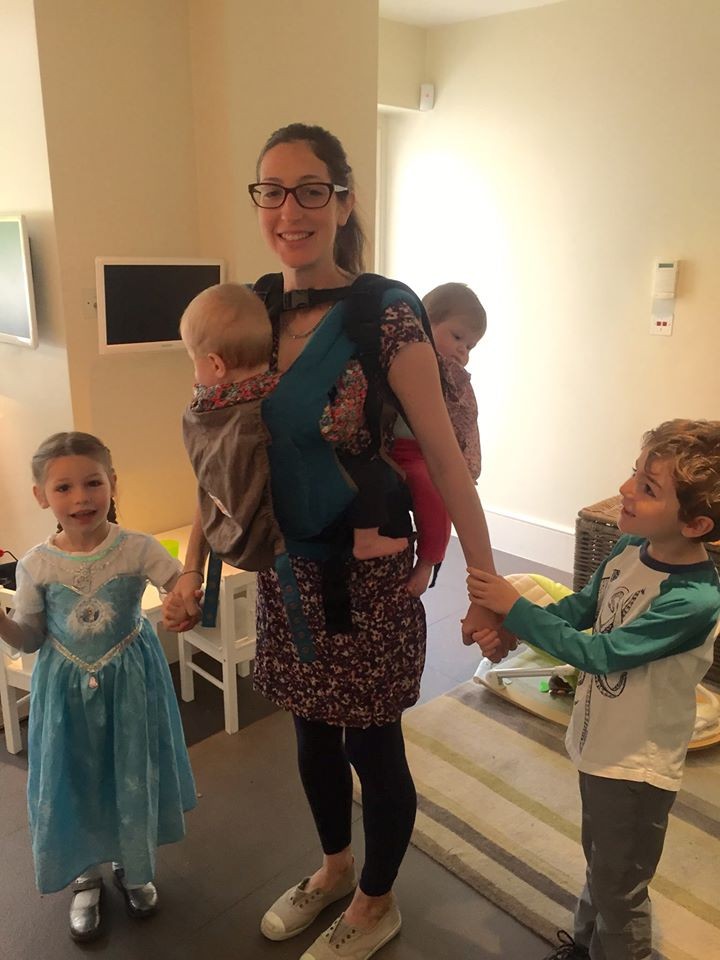Guest post from Gabrielle Joseph: Head of Due Diligence & Client Development at Rede Partners LLP
This month my oldest child, Nathan, turned 10. On 13th November 2009 we were handed a small, screaming person with bluish-tinged hands and surprisingly hairy ears. Ten years later, we’re grateful that his ears and hands look much more normal and even more grateful that he’s been joined by his three crazy sisters. And in spite of all the craziness, Adam and I are still hanging in there at work. So what have I learned in ten years of ‘the juggle’?
1. Nobody said this was going to be easy.
Nope, sorry. It’s not easy doing this and sometimes you’re going to have a bad day – or a few bad weeks. Compromises will need to be made, and some of them will make you wince. But the good days are more than worth it – both at work and at home.
2. There’s NEVER a right time to have a baby
Career-focused women often fixate on a specific level they want to have reached before starting a family – but often those sunlit uplands seem to remain just out of touching distance. A more senior role might mean more flexibility but it also often means more responsibility and higher expectations.
In my industry, private equity, it was and still is pretty unusual to have your first child while still a fairly junior Associate. But we still made it work, our way. Despite having my first child young and having never been in a straightforward 5-day-week contract ever since, I’ve managed to get promoted, move jobs and take on new professional challenges I hadn’t even imagined before my first pregnancy.

Looking back after a few years it can seem completely absurd to have worried so much about maternity leave interfering with a specific project or promotion cycle. Sometimes you just have to dive in and hope for the best.
3. Run your own race
There will always be other mums out there with a different approach to you, and inevitably some of them will make ‘helpful’ comments that slice like a poison-tipped dagger through your heart. Ultimately if you want to stay sane, the only standards you can measure yourself against are your own…
4. …and that includes making your own way if you were brought up in a family with more traditional parenting roles
This can be a source of real heartache, especially if like me you had a happy loving childhood that you would be proud to recreate for your own children. Michelle Obama says in her memoir, “I hoped to be exactly like my mother and at the same time, nothing like her at all.” Ultimately there are things that my Mum did for us that I just can’t do for my children. That makes me sad but if I don’t let that sadness go, I’ll miss out on all the other great stuff that I get to share with my kids.
5. It’s the childcare, stupid!
When it comes to ‘making it all work’ the elephant in the room is that you just can’t. YOU NEED QUALITY CHILDCARE and the inconvenient truth is that the more you invest in your childcare the more successful you can be at work and at home. We have to be honest about this for the sake of the women who look up to us as role models – that’s why I’m not shy about discussing our wonderful nanny and the help we receive from our children’s beloved grandparents.
That said, I’m in an extremely privileged position in that the economic equations of my work and childcare expenses make intuitive sense. Investing more in my childcare can be more than paid back in my career and pay progression. Unfortunately this doesn’t apply to everyone. In my experience, so much of the gender inequality we see at work stems from the problem of unaffordable, inflexible childcare. When it hardly pays for a mother to work, and when going the extra mile at work costs you money, energy and stress it’s more than understandable that many mothers choose to step back.

6. Bumps in the road may throw you off course for a bit but they also show you what really matters
Embarking on family life is a step into the unknown. On the whole we’ve been incredibly lucky. But every family hits a bump in the road at some point. In 2015 we lived through a roller coaster pregnancy and the premature birth of our twins with one of our twins becoming critically unwell. It was a tough time for all of us, especially for our older children. At times like these work can be the absolute furthest thing from your mind, and that’s ok – life, and work, doesn’t have to follow a linear progression. Taking a bit of a detour every now and again lets you explore the scenery and you come out the other end with new experiences and skills you’ll take with you when you hop back on the wagon.
6. Work / life balance only gets harder as children grow…
Small children might go to bed at 7pm leaving you to an adult dinner, household chores and catching up on unfinished work. But big children have a frustrating habit of being very much awake and interested in interacting with their parents until much later. Plus they have their reading diary; that piano exam to practice for; a much-needed de-brief about how to deal with the mean girls in the year above; a homework assignment to turn a shoebox into a biodiverse aquatic scene; the list goes on. I don’t have many words of wisdom here but as our children have entered the upper years of primary school we’ve found that this is where the rubber really hits the road in terms of time management, prioritisation and give-and-take between my husband and I.
7. …but making space for them in your worklife can help bridge the gap

My role at Rede Partners is fast paced and demanding, so it’s difficult to keep home life fully ring-fenced. Instead, as my children grow I try to make space for my children within my work life. We think of a parent at work as an absence from a child’s life – a time when there is no opportunity for interaction, closeness and shared discovery. But my experience is that, although it might not be the gold standard of ‘quality time’, having my children around me while I’m working can be an extremely positive experience for all of us. It can play to their individual interests – Nathan is a huge computer enthusiast and loves to help me with data entry tasks. He even got involved in the design and build of our recently launched new corporate website. Younger children can sit colouring on my lap while I take calls and have been known to photobomb our internal video conferences.
8. Take a parenting class – it might help you at work as well as at home!
Rachel Vecht is a renowned parenting expert and for 10 weeks I somehow managed to find the time to spend two hours a week at her Positive Parenting Course. Now, I can’t claim that it’s made me a perfect parent but it certainly gave me food for thought. Less intuitively, it also transformed the way that I gave feedback to co-workers. Parenting teaches us so many skills that are helpful in the workplace – not least the art of gracefully diffusing a temper tantrum!

9. Learning new skills isn’t just for kids
We all know children emulate their parents’ actions, not our words. If we want our children to be eager learners, the best way to motivate them is to show them that learning is something that you value and that you do. When my kids started learning the piano I decided to learn too – and I soon realised that what really enthused them to try new things was to see me doing something I found difficult, slowly and shakily but making steady progress.
The same goes for ‘soft skills’. When our children are finding something difficult at school or home, we often talk honestly about things that we’ve found hard at work, feedback we’ve received and how we’re trying to grow and improve. And guess what? having talked it through at home tends to mean we make greater progress at work.
10. Be in the room where it happens

This weekend to celebrate Nathan’s 10th birthday we went to watch Hamilton. It totally lived up to the hype and he loved every second of it. One of the refrains that really hit home with me was “I want to be in the room where it happens.” People who are ‘in the room’ make decisions that affect all of our lives. I believe very strongly that even intelligent, thoughful, good hearted people often lack insight into the lived experiences of others. For example, in her book Lean In, Sheryl Sandberg writes about how she had never understood the difficulties faced by pregnant employees until she herself was pregnant: “To this day, I’m embarrassed that I didn’t realize that pregnant women needed reserved parking until I experienced my own aching feet. As one of Google’s most senior women didn’t I have a special responsibility to think of this? But it had never occurred to me.” That’s why we need diverse experiences in those rooms – so that decisions can be made that are in the interests of all of us, not just an elite group of white men.
I have nothing but respect for women who make the decision to stay home to raise their children – and I was raised by a pretty awesome example of one. But ultimately, if we want there to be some women with children “in the rooms where it happens”, we need to ensure that there are enough of these women on upward trajectories at work so that a few of them will eventually have the experience and qualifications needed to break into those rooms. As a mother of three daughters, I feel like I owe it to them not to step off the treadmill just yet. Who knows, maybe when they grow up, they’ll step on that treadmill too – and when they get off, they’ll be right there in the room where it happens.

